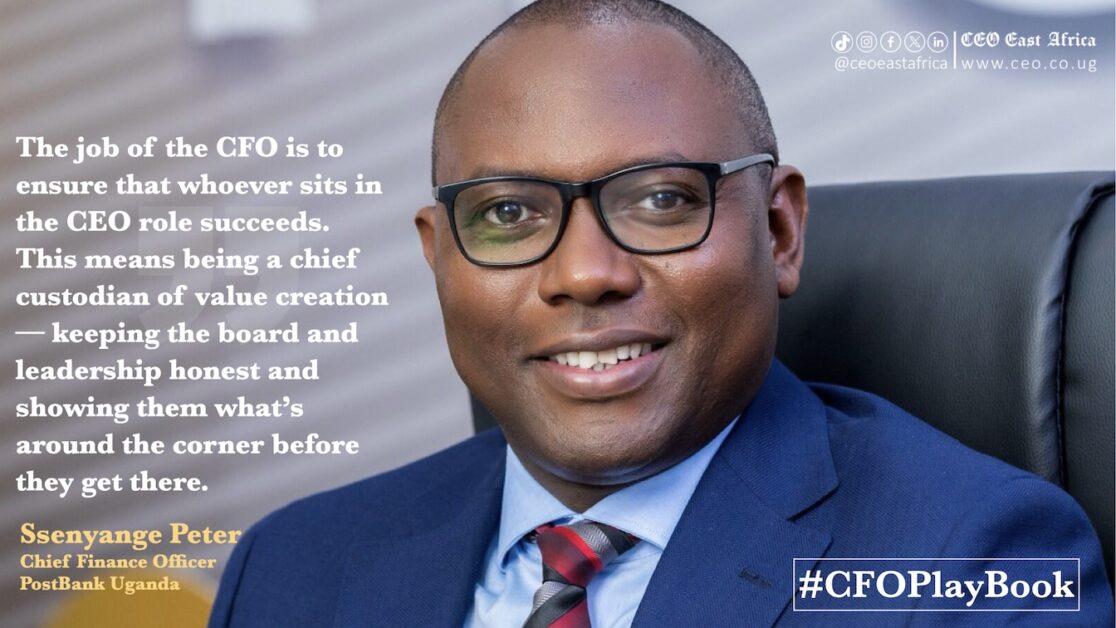In the dynamic world of corporate finance, the Chief Finance Officer (CFO) role undergoes a significant transformation. No longer confined to back-office number crunching, today’s CFOs act as strategic partners,…
Driving Growth, Managing Risk and The Evolving CFO: Insights from PostBank Uganda’s Peter Ssenyange

